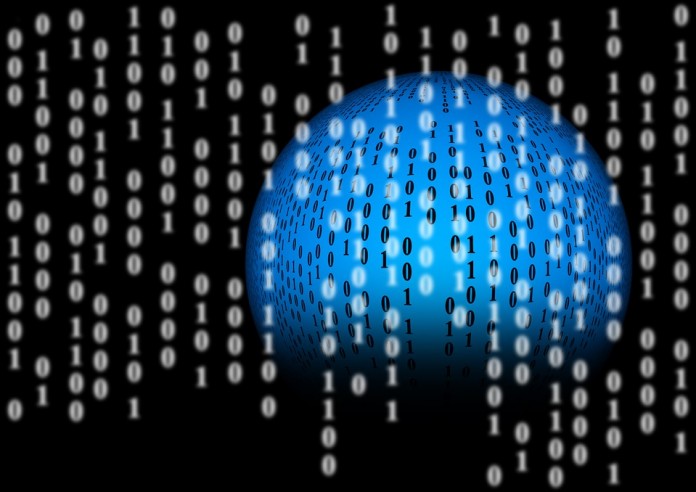In this blog post, Neeli M. Sandesara, a student pursuing her BLS LLB from Mumbai University and a Diploma in Entrepreneurship Administration and Business Laws by NUJS, discusses the process of deduction of TDS on a software transaction.
INTRODUCTION
Taxation on software transaction is hotly debated today. Due to the development in the software, its buying and selling i.e. the software transaction has increased tremendously. If I have to deal with the topic of software transactions, taxation is something which I must deal with first as it forms the most integral part of any transaction.
The term ‘buying’ and ‘selling’ are not correct conceptually but for a better understanding of my readers I have used those terms. When I deal with this concept in toto in my further research paper, I will use the terms ‘licensor’ for the seller and ‘licensee’ for the purchaser. The sale of these types of software is not like an ordinary sale of goods, it is more of a ‘licence’ transaction. The payment is called the ‘royalty’ of using a software license and not just the payment per se. When the developer or the service provider sells this product and not just provides a license to it, it is then the called as ‘professional charges’ TDS is deducted at the stage of making payment i.e. when the invoice is raised by the developer, though he will raise the invoice for the total amount but the software developer or the software service provider will receive the amount minus TDS.
RESEARCH OBJECTIVE
Research Statement- How to deduct TDS on software transaction.
Specific Objective– To put forth mechanism of calculation of TDS on the software transaction and the percentage of it as per the Income Tax Act, 1961.
KINDS OF SERVICES PROVIDED
Due to the demand of various kinds of software services, the growth in this field is inevitable. Everyday there is some or the other kind of a innovation/development which is introduced in the market.
I have enumerated some very commonly used software along with a short explanation to it and they are as follows-
- Perpetual License– the perpetual licensor will allow the customer to use the licence indefinitely.
- Software as a Service (‘SaaS’)- this is kind of a software and a delivery model which is licensed on a subscription basis.
- Annual Maintenance Contract of Software (AMCs)- Its an agreement between the customers and contractors(companies) wherein the contractors are appointed to look into the maintenance of the computer system of its customer. It is generally for a term of one year.
Some other widely used services are – Online software purchase from foreign service provider, hosting service, internet service, software architecture services, software testing services and software project management services provided by Indian service provider and by foreign service provider.
PROVISIONS RELATING TO TDS ON THE INCOME TAX ACT, 1961(hereinafter referred to as the ‘Act’)
Section 194C of the Act which deals with the TDS deducted on contracts (which also includes service contracts).
| What is the law? | Exceptions to the law | Threshold | Rate of TDS |
|
As per S.194C- any person who is responsible for making any payment to the contractor or to the subcontractor for undertaking any work. ‘Work’ for the purpose of this section includes-
But does not include manufacturing or supplying a product according to the requirement or specification of customer by using material purchased from a person, other than that customer. |
The Hindu Undivided Family, Body of Individuals, Association of Persons are exempted from paying TDS if the turnover of their business is less than 1cr.p.a. and in case of a professional- if the income is less than 25Lakhs p.a. | The payer has to deduct tax if the total amount paid to the contractor or the sub-contractor exceeds Rs. 75,000(budget 2016-17 proposed increase to 1Lakh w.e.f. June 1, 2016) or any single sum payable exceeds Rs.30,000 |
|
This section will be dealt while calculating TDS on maintenance of not so technical services. In order to know more about technical services we now refer to S. 194J of the Act.
Section 194J deals with TDS on technical maintenance services (which will include ‘AMCs’)
| What is the law? | Exceptions to the law | Threshold | Rate of TDS |
|
Any individual or an HUF who is responsible for paying to the resident any sum by way of- 1)Fees for professional services (For the purpose of this section ‘professional fees’ include services like legal. medical, technical which is rendered by a professional ) 2)Fees for technical services(As per Section Explanation (2)of Clause (vii)of sub-section (1)of section 9) 3) Royalty (As per Section Explanation (2)of Clause (vi)of sub-section (1)of section 9) 4)Any remuneration, fee or commission, by whatever named called which is not a not in the nature of his salary 5)Compete fees |
An individual or an HUF is exempted if the technical or professional fee is paid towards the personal use and if the turnover does not exceed Rs. 1cr. in case of an organisation and Rs. 25 lakhs in case of a professional | Rs. 30,000 to each payment separately and not individually | 10% of such income |
For the purpose of this section, it is very vital for us to understand and know the difference between the ‘professional fees’ and ‘royalty’. When a developer sells his software outright, he will not claim royalty from it but just the professional fees, but when a customer obtains a licence to use software, the developer will get his due share of royalty.
DTAA with various countries have defined royalty in wider terms which even includes the consultancy services pertaining to the technical project. I have incorporated the pointers for lucid under understanding.
Residence State
- May tax
- Included in the taxable income
Source State
- May not tax
- Tax not allowed
As far as technical fees is concerned, there is no separate Article in OECD Model and UN Model for technical fees. However, we can find FTS (Fees for Technical Services) under Article 7 of the US Model Convention. Terms like ‘Technical Services’, ‘Managerial Services’ and ‘Consultancy Services haven’t been given any interpretation by the Indian Courts and have obtained meaning from various foreign courts and dictionaries.
As per Section 195 of the Act which deals with payment of royalties and technical fees to non-residents.
As regards transfer of payment to a non-resident in consideration of royalty or technical services received, Section 195 of the IT Act provides that –
Any person responsible for paying to a non-resident including a foreign company any sum (other than interest on securities and dividends) which is chargeable to tax in India is required to deduct tax at source on such income at the time of payment.
Provisions of Double Taxation Avoidance Agreement (DTAA) overrule domestic tax laws of contracting states. Difference may arise on account of Tax Rates and Scope of Taxability.
As per the circular dated 13 February 2013, payment by a person (hereafter referred to as the transferee) for acquisition of software from another person, being a resident, (hereafter referred to as the transferor), where-
(i) the software is acquired in a subsequent transfer and the transferor has transferred the software without any modification,
(ii) tax has been deducted-
(a) under section 194J on payment for any previous transfer of such software; or
(b) under section 195 on payment for any previous transfer of such software from a non-resident, and
(iii) the transferee obtains a declaration from the transferor that the tax has been deducted either under sub-clause (a) or (b) of clause (ii) along with the Permanent Account Number of the transferor.
The Central Government hereby notifies that no deduction of tax shall be made on the abovementioned payment under of the Act.
CONCLUSION
I would like to conclude my research by summing up on certain aspects. Software transactions are mainly dealt under S.194C, 194J and 195. With this I have even stated as to how TDS varies when a transaction is done overseas.
Concluding remarks:
- Need to define certain concepts such as ‘FTS’ for the sake of clarity and better interpretation. General dictionary meaning does not fetch much weightage; and
- Need to align with the internationally accepted taxation principles
LawSikho has created a telegram group for exchanging legal knowledge, referrals and various opportunities. You can click on this link and join:
https://t.me/joinchat/J_
 Serato DJ Crack 2025Serato DJ PRO Crack
Serato DJ Crack 2025Serato DJ PRO Crack










 Allow notifications
Allow notifications


